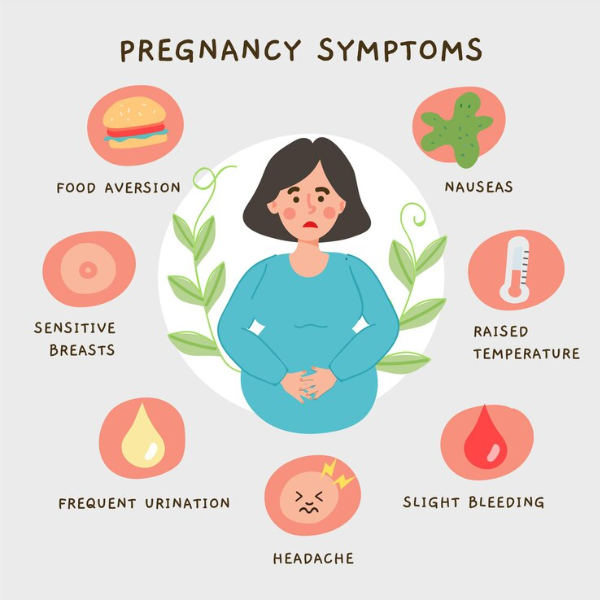What Expectant Mothers & Their Spouses Need to Know
Bringing in a new life into this world is a wonderful journey, but is accompanied by the duty of ensuring that both the mother and baby are healthy. This is where prenatal testing becomes essential; it gives the expecting parents insights into how they should prepare for a smooth pregnancy and a healthy delivery.
As a respected lady gynaecologist doctor in South Delhi, Dr Chintan Chaudhary – specialising as a Fetal Medicine Specialist and High-Risk Obstetrician with over 13 years of experience; is here to guide expecting mothers through the most vital stages of pregnancy with skilled care and support.
Why is Prenatal Testing Important?
Prenatal testing is all about medical examinations and screenings done to a pregnant woman to determine the health of the mother, and also possibly any anomaly with the foetus. All these tests are important as they:
- Ensure early genetic conditions and chromosomal abnormalities or development issues are detected.
- They facilitate doctors in planning timely interventions, so that both the mother and child can have a healthy outcome.
- Give reassurance and clarification to the pregnant mother, giving her a clear vision of making the right choice.
Due to medical technology advances, prenatal testing is much safer, faster, and accurate, allowing mothers to feel more at ease during the whole pregnancy process.
Types of Prenatal Testing
There are two main types of prenatal tests:
- Screening Tests: These determine the risk of certain conditions or complications. Examples include blood tests, ultrasound scans and the Non-Invasive Prenatal Test (NIPT).
- Diagnostic Tests: If screening results show higher risks, diagnostic tests like amniocentesis or chorionic villus sampling (CVS) are used to confirm the findings.
NIPT (Non-Invasive Prenatal Testing) is one of the most advanced and widely recommended screening tests, offering safe and accurate results without invasive procedures.
Understanding NIPT: A Safe and Accurate Screening Tool
NIPT is a cutting-edge, non-invasive blood test that screens for chromosomal abnormalities in the developing baby. Unlike traditional invasive procedures, NIPT poses no risk to the mother or baby and provides highly accurate results early in pregnancy.
What Does NIPT Screen For?
NIPT primarily detects common chromosomal conditions, including:
- Trisomy 21 (Down Syndrome): A genetic condition causing developmental delays and intellectual disabilities.
- Trisomy 18 (Edwards Syndrome): A severe condition affecting organ development.
- Trisomy 13 (Patau Syndrome): A rare condition causing significant developmental challenges.
With its accuracy rate of over 99%, NIPT offers expectant parents a clear understanding of their baby’s health without undergoing invasive tests.
When and Why is NIPT Recommended?
NIPT is usually provided as early as the 10th week of pregnancy and is especially recommended in cases such as:
- High nuchal translucency (fluid buildup detected during the first-trimester ultrasound).
- Abnormal results from other screening tests.
- A family history of genetic conditions.
- Advanced maternal age (35 years or older).
Consultation with a well-experienced lady gynaecologist doctor in South Delhi, like Dr. Chintan Chaudhary, will make sure that you get the advice suited to your specific medical history and risk factors. She is the best gynaecologist in South Delhi for overall prenatal care as she has experience in fetal medicine.
Prenatal Testing and NIPT Preparation: Tips for Expectant Mothers
If you’re planning to undergo prenatal testing or NIPT, here are some tips to help you prepare for the same:
- Keep Yourself Informed: Educate yourself about the purpose and benefits of the tests. Knowledge reduces anxiety.
- Ask Questions: Do not hesitate to discuss any concerns with your doctor. Dr. Chintan Chaudhary ensures her patients feel heard, informed, and supported.
- Bring Your Partner: Bringing your spouse or a family member with you can be emotionally supporting and reassuring.
- Take Care of Yourself: Maintain a healthy diet, stay hydrated, and rest well before the test.
Normal questions such as, “Is the test safe?” or “What if the results are positive?” are natural. Remember, prenatal testing empowers you to plan and make the best decisions for your growing family.
Why Choose Dr. Chintan Chaudhary for Prenatal Testing?
When it comes to your pregnancy, trusting an expert is essential. As the best gynaecologist in South Delhi, Dr. Chintan Chaudhary combines years of experience, advanced knowledge, and a compassionate approach to ensure the health of both mother and baby.
Her specialized focus as a Fetal Medicine Specialist and High-Risk Obstetrician makes her uniquely equipped to offer:
- Personalized prenatal care tailored to your needs.
- Advanced screenings like NIPT for accurate and timely results.
- Comprehensive support for expectant mothers and their families.
Whether you need routine prenatal testing or advanced screening like NIPT, Dr. Chintan Chaudhary is committed to providing the highest standard of care.
Conclusion
Prenatal testing, including NIPT, helps in ensuring a healthy pregnancy and readiness for the arrival of the baby. You can begin your pregnancy journey with greater confidence and peace of mind due to early detection with the help of advanced technology and professional guidance.
For trusted lady gynaecologist doctor in South Delhi, it’s time to think about Dr Chintan Chaudhary as the perfect companion for prenatal care. His expertise, compassion, and dedication to maternal health make him the best gynaecologist in South Delhi for pregnant women.
Book a consultation today and begin a healthy, informed pregnancy journey.

